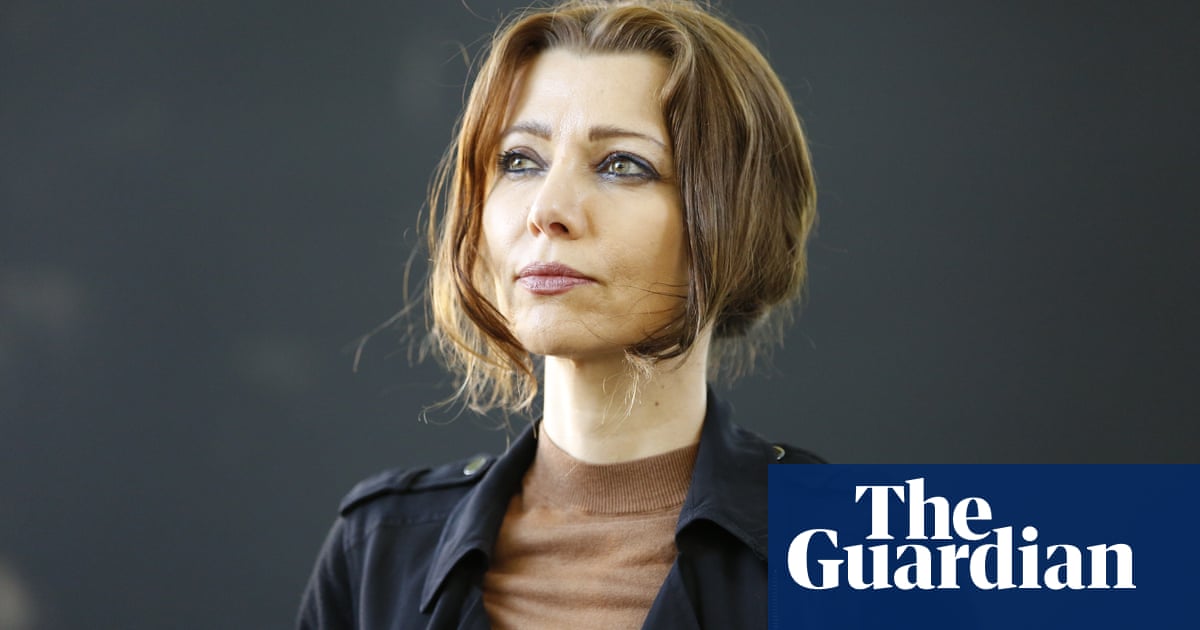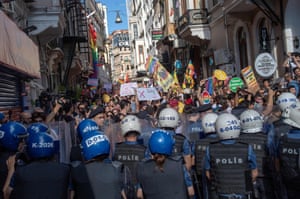The author once put on trial for insulting Turkishness explains why writers, academics and especially women, face escalating hostility in Erdoans Turkey

One day two months ago I woke up to thousands of abusive messages on Turkish social media, many of them generated by bots and trolls. Sentences had been plucked from one of my novels, The Gaze, and were being circulated by people demanding fiction writers be put on trial for obscenity. My new novel, 10 Minutes 38 Seconds in This Strange World,was also targeted. Both books explore difficult subjects sexual harassment, gender violence and child abuse and I was far from the only writer targeted in this way. Soon the hysteria turned into a kind of digital lynching of Turkish authors who had even slightly touched on similar issues in their novels and short stories.
I received a distressed call from my Turkish publisher the same week, informing me that civilian police officers had come to the office demanding to see a number of books. Not only my fiction but titles by Duygu Asena, a leading feminist who died in 2006. The books were taken to the prosecutors office to be investigated.
Since the attempted coup of 2016, 29publishing houses have been closed by decree, and 135,000 books have been banned from public libraries, including those by Louis Althusser and Nzim Hikmet, Turkeys greatest poet. A prosecutor has accused Baruch Spinoza and Albert Camus of being members of a terrorist organisation. Much has been said about the anti-liberal nature of authoritarian populism, but relatively little about two other features concomitant with its rise: anti-intellectualism and anti-feminism. Authoritarian populism likes to divide society into two camps: the pure people versus the corrupt elite. Writers, poets, journalists and scholars are often associated with the latter group. In the populist imagination, being elite has nothing to do with economic power or social status. It is about values. In this way, a university assistant who cannot afford a house in the city and has to commute for hours every day but happens to have progressive ideas can be labelled elite, while a hedge fund manager will be called a man of the people if he sponsors populist nationalistic movements.
The people are romanticised as pure and innocent. The deputy rector of a newly established university in Turkey, Blent Ari, claimed on TV: Id rather trust ignorant people who have not attended university or better yet, not even attended primary school because their minds are pure. Saying he was unhappy to see literacy rates going up, he claimed that people who had higher education and were more cultured also had blurred minds and couldnt think straight. If Erdoan leaves it will be a catastrophe, he added. Afterwards, he was promoted by the government to the Council of Higher Education.
There is a clear animosity towards intellectuals under President Erdoans AKP government. More than 7,300 academics have been dismissed via emergency state decrees. Around 700 scholars have been criminally charged for signing a peace petition. They have lost their jobs and been blacklisted. Some have been arrested, others have had travel bans imposed on them or had their passports confiscated. Mehmet Fatih Tra, a university assistant who had signed the peace petition and was then fired, killed himself. Professor ebnem Korur Fincanci, chair of the Human Rights Foundation, and Aye Gl Altnay, a professor of gender and womens studies, were both given two-year prison sentences. Professor Fsun stel, one of Turkeys leading academics on nationalism and identity, is in prison.
It is equally hard for female journalists. Nurcan Baysal had police knocking on her door in the middle of the night. Baysal is one of the most important voices writing about the traumas of Yazidi and Kurdish women, and she was put on trial for her articles. Ayla Albayrak from the Wall Street Journal was charged with terrorist propaganda after penning an article about what was transpiring in the Kurdish-majority south-east. She was sentenced in absentia. Article 19 called the decision an unprecedented verdict for a reporter of a foreign media outlet.
The rhetoric of anti-intellectualism goes hand in hand with anti-feminism. You [feminists] have nothing to do with our religion or our civilisation, said Erdoan. Like intellectuals, feminists are accused of being pawns of the west and rootless cosmopolitans. Women in opposition parties are targeted ruthlessly. Canan Kaftancolu, the provincial chair of the Republican Peoples Party, played a major role in the electoral victory of the twice elected mayor of Istanbul, Ekrem mamolu. Today Kaftancolu is under vicious attack by pro-government papers and social media channels. Last week Istanbul prosecutors demanded she be imprisoned for writing a series of tweets. She is accused of insulting the president and spreading terrorist propaganda. In response she tweeted: There is something clear: they are afraid of women, of women who do not mince their words and are brave. I think they are right to be afraid.

Turkeys trajectory shows that wherever there is a rise of nationalism and authoritarianism, patriarchy and homophobia are also in the ascendant. Last month, for the fifth time, the Pride Parade in Istanbul was banned and dispersed with rubber bullets, tear gas and police violence. This is the kind of Europe authoritarian populists are trying to create: an anti-intellectual, anti-feminist, anti-LGBT and anti-abortion rights Europe. In Hungary, the government has banned gender and womens studies, with the assertion: We do not consider it acceptable to talk about socially constructed genders, rather than biological sexes. Prime minister Viktor Orbns policy of giving tax cuts to mothers who bear more children resembles Erdoans drive to encourage Turkish women to have bigger families. Have not just three, but five children, Erdoan told Turks in Europe in 2017. Meanwhile the Polish health ministry has put out a video urging citizens to procreate: If you ever want to be a parent, follow the example of rabbits. Morning after pills are no longer available over the counter in Poland and Polish abortion law remains one of the strictest across Europe. In Warsaw 14 women were beaten and prosecuted for opening a banner that said Stop Fascism. In Spain, the Vox Movement hired a bus with a picture of Hitler on it and a caption underneath that said: #StopFeminazis.
Gender is an important part of this new narrative. If women can be convinced to return to traditional values, the population will increase and majority-minority ratios will be as they used to be. Demographic changes are a primary concern for populist nationalists. If white populations continue to remain as the majority, nationalism will feel more secure. There will also be less need for immigrant workers coming from abroad. It is not a coincidence that anti-immigration rhetoric is entwined with a growing anti-feminist rhetoric.
In 2006, after I wrote The Bastard of Istanbul a novel about a Turkish and Armenian-American family I was put on trial for insulting Turkishness. The words of several of my Armenian fictional characters were used as evidence by the prosecutors. As a result, my Turkish lawyer had to defend not only me but also my characters. I wish I could say that Turkey has made progress in human rights and freedom of speech since then, but I am afraid it has been the opposite.
No country is immune to the rise of populist nationalism. As liberal democratic values continue to be endangered, we storytellers are now facing unexpected challenges. Doris Lessing once said that literature was analysis after the event. But there might be times when literature has to become analysis during the event. Paradoxically, at a time when truth is under attack, writers might need to defend fiction more loudly. In the age of anger, tribalism and apathy, we need stories of connectivity, humanism and empathy. In the face of binary oppositions, we need to promote a more nuanced way of thinking. Wherever there is a decline in democracy we will see an increase in censorship and intolerance. Today, more than ever before, literature has to be not only about stories but also about silences and the silenced. It has to become a sanctuary for the disempowered and the marginalised across the world.


Recent Comments